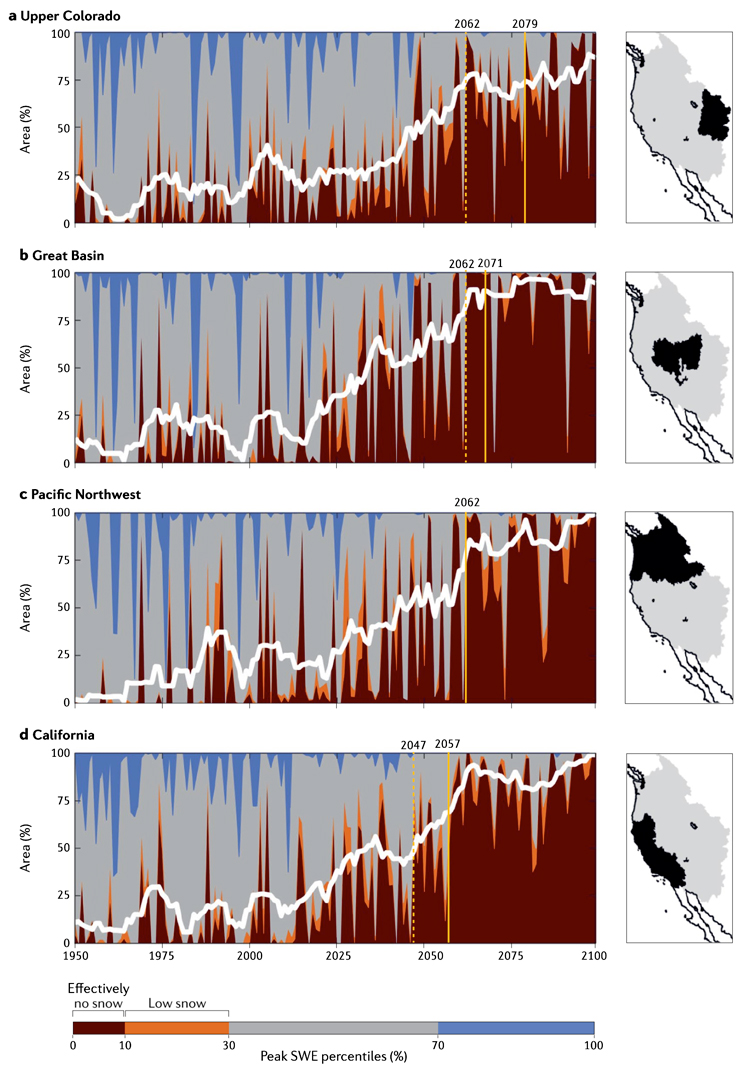Some Western Mountain Ranges Could Go Snow-Free For Years At A Time Starting As Soon As 2040
Across the Central Rockies, it’s been an unseasonably warm, dry year. Denver smashed the record for its latest first measurable winter snow. Colorado ski resorts delayed opening because temperatures were too high to even produce fake snow. And Salt Lake City was entirely snowless through November, for only the second time since 1976.
These snowless scenarios, while still an exception, are set to become much more common as early as 2040, according to a paper published in Nature Reviews Earth and Environment. Drawing from years of snowpack observations, the researchers project that in 35 to 60 years, the Mountain West will be nearly snowless for years at a time if worldwide greenhouse gas emissions are not rapidly reduced. This could impact everything from wildfires to drinking water.
The purpose of the study was twofold. First, researchers wanted to highlight the extent of snow loss in the last several decades, and in those to come. “This is not an issue in a hypothetical future,” said Erica Siirila-Woodburn, a research scientist at the Lawrence Berkeley National Laboratory and one of the study’s lead authors. The Mountain West has already lost 20 percent of its snowpack since the 1950s and could lose another 50 percent by the end of the century. Another key objective, said Siirila-Woodburn, was to provide more accurate and usable information to water managers and policymakers who need precise information on how much time they have to prepare for a future with much less snow.

The white line indicates the 10-year average snow cover of each basin area. Yellow vertical dashed and solid lines indicate the emergence of episodic (low-to-no snow for 5 consecutive years) and persistent (low-to-no snow for 10 consecutive years) snow disappearance. Siirila-Woodburn et al.
EDIT
The effects will extend far beyond just shuttered ski resorts. The study points out that the declining snowpack is already contributing to another growing problem in the West: extreme wildfires. Lack of snow after wildfires could make it much harder for forests to recover. “Snow matters after the fire in terms of facilitating or fostering the revegetation of the area,” said Anne Nolin, a snow hydrologist and professor at the University of Nevada, Reno, who has studied the connection between snow and post-wildfire forest recovery. (Nolin was not involved with the paper.) And with more precipitation falling as rain instead of snow, this could permanently alter the kind of vegetation that grows back, as well as the structure of the soils, which can lead to issues like erosion. “This all has cascading impacts,” Nolin said.
EDIT
https://grist.org/climate/winter-without-snow-is-coming-scientists-warn/
